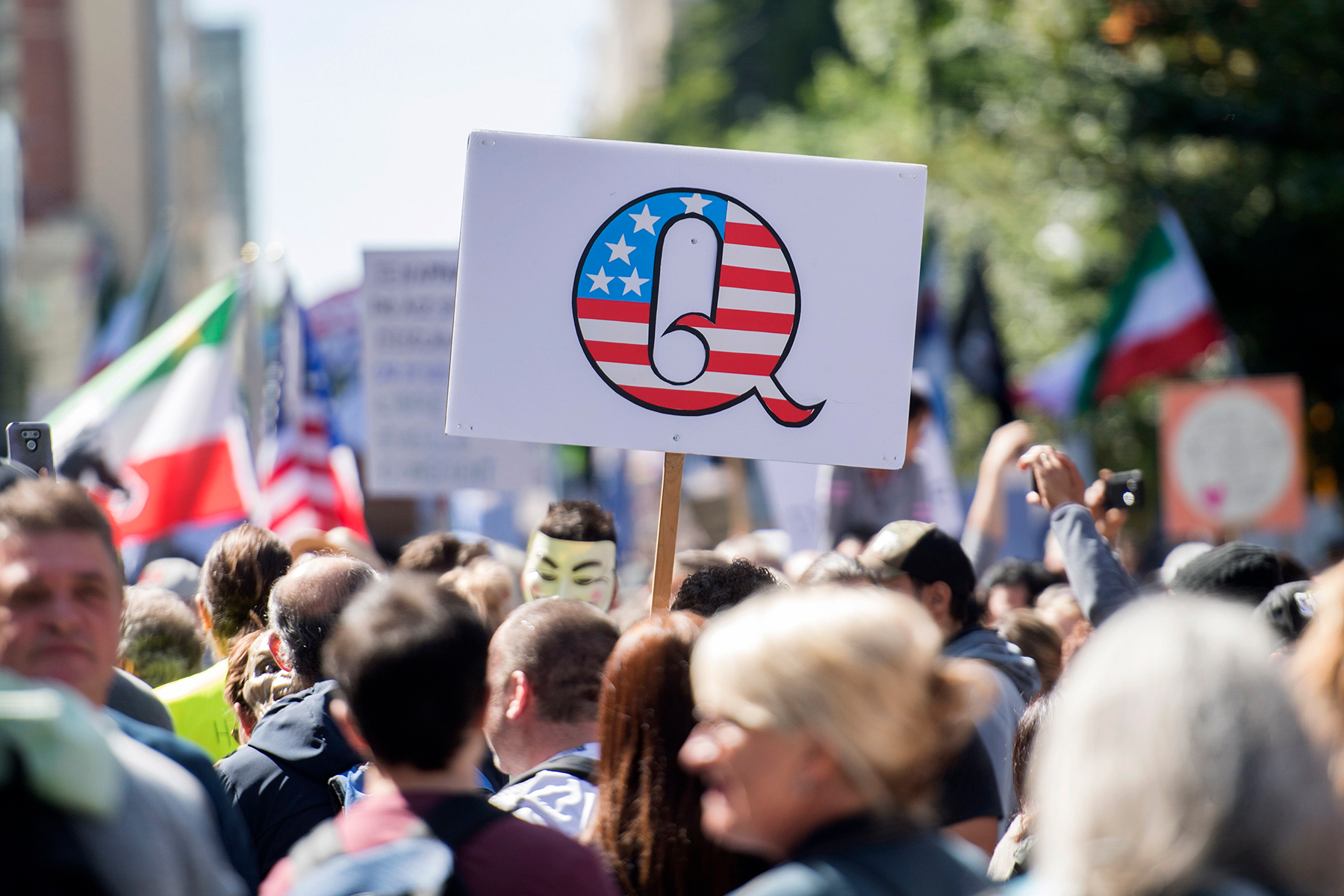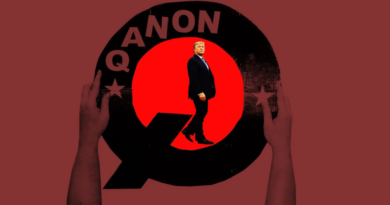QAnon Believers Are Pushing New Trump Conspiracy Theories on TikTok

Over the past few months, as conspiracy theories have circulated regarding the election results and President Joe Biden’s inauguration, social platforms have struggled to keep up with the onslaught of misinformation. Much of these false narratives have been driven by believers of the QAnon conspiracy theory, the baseless idea that President Trump is lying in wait to expose a secret cabal of Democrats engaged in a child sex-trafficking ring. Inauguration Day was supposed to mark the “storm,” or the day of reckoning when Trump would arrest all of his enemies and send them to Guantanamo Bay; when the storm never arrived, many QAnon believers were left angry and confused.
In the week since the inauguration, QAnon believers have struggled to reconcile their worldview with the reality that Biden is president, in many cases coming up with new, increasingly bizarre theories to support their belief that Trump will soon take office once again. TikTok, which has a younger-skewing user base and has historically struggled to curb the proliferation of conspiracy theories, is one social platform currently playing host to the baseless belief that President Trump will be sworn into office on March 4th, 2021.
Under hashtags like #19thpresident (which has more than 235,000 views), or #march4th (which has more than 1.4 million views) TikTok users are propagating the idea that an obscure 1871 act made the United States a corporation and not a federal government, thus rendering any laws passed after that year moot and U.S. citizens not subject to them. According to this theory, the United States will revert back to its original form on March 4th, the date when presidents were inaugurated prior to the 1933 passage of the 20th amendment. They believe Trump will be sworn in as the 19th president of the United States. (The 18th president, Ulysses S. Grant, served between 1869 and 1877, or the time period when those who cling to this theory believe the United States “became” a “corporation.”)
One video linking to a YouTube video that promotes this belief has more than 44,000 views; another, featuring a woman claiming “in March, President Trump will be the original president under the US Constitution,” has more than 442,000 views. Some conspiracy theorists point to the presence of National Guard troops in Washington, D.C. until March as “evidence” to support this theory, or cite the fact that FederalRegister.gov, a database of federal register documents, is not yet listing Biden’s approved executive orders as “evidence” that his administration is a sham.
“Listen, patriots, y’all can relax. We’re going back to a republic come March. Trump will be back in the presidency but he will be the 19th president ’cause we’re not gonna be a corporation no more. We’re going back to the republic,” one TikTok creator says in a video that has also been duetted by other Trump supporters. “Your boy will be inaugurated March 4. Period, point blank, end of story,” says another TikTok creator with more than 78,000 followers, in a video that has 15,400 views.
In response to a request for comment, a TikTok spokesperson said: “TikTok stands firmly against the disinformation and violence perpetuated by QAnon. We remove content and accounts that promote QAnon and redirect searches and hashtags to our Community Guidelines. We continually update our safeguards with misspellings and new phrases as we work to keep TikTok a safe and authentic place for our community.” The spokesperson added that hashtags like #itsnotover and #19th president have been directed to TikTok community guidelines and that it would remove any posts disseminating misinformation associated with #march4.
This conspiracy theory stems from the principles of the sovereign citizen movement, a fringe movement predicated on a slew of bizarre legal interpretations and theories aimed at “proving” that U.S. citizens are not subject to any laws passed after 1871. There has historically been some minor overlap between the sovereign citizen movement and the QAnon community, says Mike Rothschild, a QAnon expert and author of the book World’s Worst Conspiracies. ” These are people who think that through legal chicanery they can free themselves of U.S. laws and open up huge bank accounts that only they can access,” he says. “These ideas aren’t a million miles from Q, or from the affinity frauds that led up to it. It’s all about believing yourself [to be] above the law and special and ‘chosen’ in ways that normal law-abiding citizens don’t know about.”
With Biden’s inauguration and Trump officially out of the White House, however, the connection between the two groups appears to have strengthened. The events of last week, says Rothschild, have “sent these people scrambling for ways to put themselves outside the bounds of what the US government can do to them….the most important thing is that it’s BS and more kicking of the can down the road.”
>The increasing convergence of the two groups is concerning, to say the least, says Aoife Gallagher, an extremism expert and analyst at the Institute for Strategic Dialogue. “The sovereign citizen movement is inherently anti-government and pushing these theories only furthers the belief within the QAnon community of a ‘deep state’ secretly controlling the world and could certainly push people further down the extremism rabbit hole,” she says.
In recent weeks, numerous big tech platforms such as Facebook and Twitter have made public efforts to remove QAnon believers from their platforms. As Rolling Stone previously reported, such deplatforming has led to adherents of the theory scrambling to less moderated platforms such as Telegram, an encrypted messaging app where sovereign citizen theories are currently thriving. “Biden is the president of the corporation not of our Republic. Act of 1871,” says one commenter on a QAnon Telegram thread where an elaborate summary of the sovereign citizen theory was recently posted.
TikTok has also made a concerted effort to deplatform conspiracy theorists, tightening its crackdown on QAnon with a mass purge of accounts last October. “They’ve banned hashtags and have made efforts to stop purposefully misspelled workarounds on the platform,” says Gallagher. “In saying that, QAnon content is still racking up thousands of views on the platform as they come up with more ways to avoid detection,” such as purposefully misspelling QAnon-related hashtags or hijacking existing, unrelated ones. And as the conspiracy theories trying to make sense of a Trump-free White House evolve and become more convoluted, so too do the platforms need to evolve in trying to prevent them from taking root.

